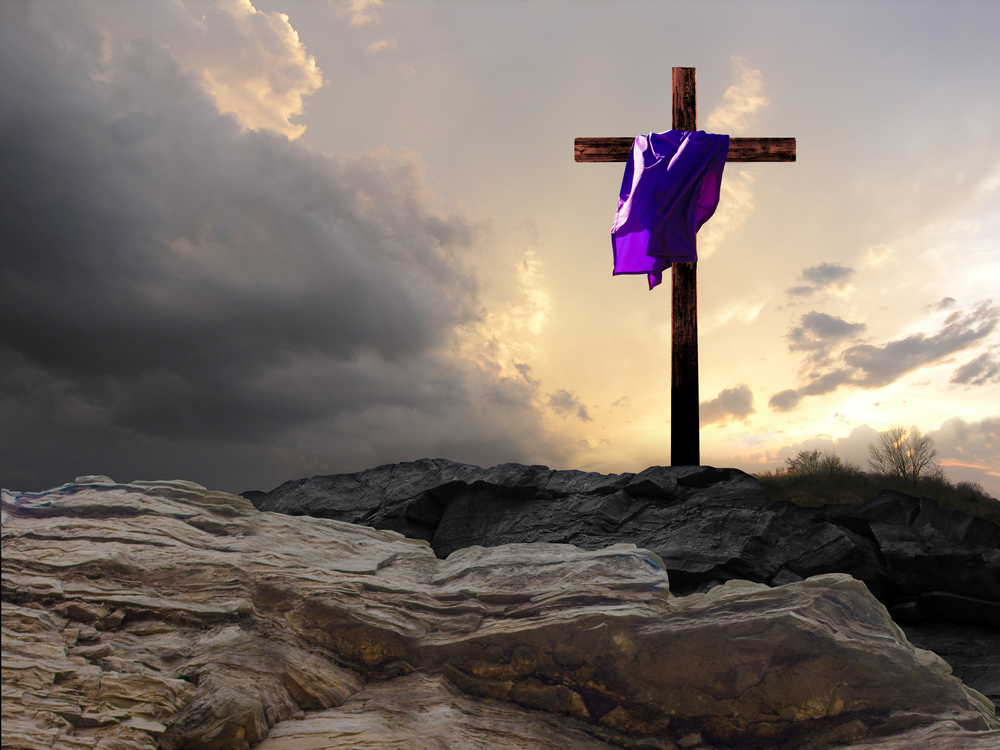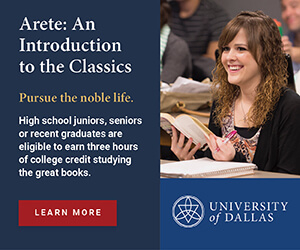Today we begin the Easter Triduum. It is the most sacred time in the Christian calendar, and the summit of our Liturgical Year, when we commemorate the death and resurrection of Jesus Christ. If you’re not familiar with what the Triduum is or why it’s important, now is a great time to learn!
The word triduum comes from Latin roots, meaning “the three days” or “a period of three days” because it starts on the evening of Holy Thursday and lasts until the evening of Easter Sunday.
As we commemorate the death and resurrection of Jesus, the liturgies of the Triduum draw us into the Paschal Mystery – that in dying Christ destroyed death, and by rising He restored life. The Catechism of the Catholic Church tells us the significance of the Easter Triduum in paragraph #1168, saying:
Beginning with the Easter Triduum as its source of light, the new age of the Resurrection fills the whole liturgical year with its brilliance. Gradually, on either side of this source, the year is transfigured by the liturgy.
To better understand and enter into this solemn time more fully, below you will find an explanation of each day of the Triduum, as well as its significance.
Holy Thursday
The Triduum begins on the evening of Holy Thursday. Holy Thursday is when we commemorate the Last Supper that Jesus shared with His disciples, during which He instituted the Eucharist as His true body, blood, soul, and divinity, and instituted the sacrament of the priesthood. The Mass of the Lord’s Supper is celebrated on Thursday evening.
During the Last Supper, Jesus washed the feet of His disciples, who would become the first priests. After washing their feet He told them, ‘Now that I, your Lord and Teacher, have washed your feet, you also should wash one another’s feet. I have set you an example that you should do as I have done for you.’ Thus, during the Mass of the Lord’s Supper, the priest washes the feet of several parishioners.
Also during the Last Supper, Jesus took the bread, gave it to His disciples and said, ‘This is my body, which will be given for you; do this in memory of me.’ And likewise He took the cup and said, ‘This cup is the new covenant in my blood, which will be shed for you.’ On Holy Thursday we commemorate the Last Supper, as we do at every Mass, with the Liturgy of the Eucharist. That night, Eucharistic Adoration takes place, and the faithful remain with Christ in the Eucharist, keeping vigil with Him as the disciples did that night.
Good Friday
Good Friday is the day we celebrate the crucifixion and death of Jesus. It is a day of fasting, during which Catholics not only abstain from meat, but only eat one full meal and two smaller meals the entire day. There is no Mass or celebration of the Eucharist celebrated on Good Friday. If there is a Communion service on Good Friday, the hosts come from those that were consecrated on Holy Thursday.
Though Mass is not celebrated, most parishes have a Good Friday liturgy, during which there is a reading of the Lord’s Passion and the Veneration of the Cross. During the Veneration of the Cross, a cross is brought into the church, and the faithful come forward to kneel before it and kiss it. In reverencing this representation of Christ’s Cross, we honor Christ and His sacrifice, through which He brought us salvation.
Another way that many commemorate Good Friday is with the Stations of the Cross. These are a 14-step devotion that walk through the events that took place on Good Friday – beginning with Jesus being condemned to death and ending with His placement in the tomb. Most parishes have Stations of the Cross inside or outside the church building, which include images to help you meditate on each station and walk with Jesus on His journey to Calvary.
Holy Saturday
On Holy Saturday, we commemorate the day that Jesus descended into hell. The Catechism of the Catholic Church tells us in paragraphs 633-634:
Scripture calls the abode of the dead, to which the dead Christ went down, “hell” – Sheol in Hebrew or Hades in Greek – because those who are there are deprived of the vision of God.
Such is the case for all the dead, whether evil or righteous, while they await the Redeemer: which does not mean that their lot is identical, as Jesus shows through the parable of the poor man Lazarus who was received into “Abraham’s bosom”:
“It is precisely these holy souls, who awaited their Saviour in Abraham’s bosom, whom Christ the Lord delivered when he descended into hell.”
Jesus did not descend into hell to deliver the damned, nor to destroy the hell of damnation, but to free the just who had gone before him.
“The gospel was preached even to the dead.” The descent into hell brings the Gospel message of salvation to complete fulfillment.
After nightfall on Holy Saturday, the Easter Vigil is celebrated. The Easter Vigil is the first official celebration of Easter, and it is rich in its symbols, rites and readings. It is during the Easter Vigil that those who have been preparing for full reception into the Catholic Church are welcomed through the sacraments of Baptism, Confirmation, and Holy Eucharist.
Easter Sunday
Easter Sunday is when we celebrate Christ’s resurrection from the dead. St. Paul tells us in the letter to the Corinthians, ‘if Christ has not been raised, your faith is vain; you are still in your sins.’ Indeed, the resurrection is the central truth of Christianity, as the Catechism tells us in paragraph 638:
The Resurrection of Jesus is the crowning truth of our faith in Christ, a faith believed and lived as the central truth by the first Christian community; handed on as fundamental by Tradition; established by the documents of the New Testament; and preached as an essential part of the Paschal mystery along with the cross.
Easter is a time of rejoicing, and it doesn’t end in one day. Easter Sunday is the beginning of an entire liturgical season! The Easter season lasts 50 days, until the celebration of Pentecost Sunday. After the penitential season of Lent, the Church takes time to celebrate – for Christ is risen indeed!
From all of us at Relevant Radio®, may you have a blessed Triduum and a joyous Easter season!


